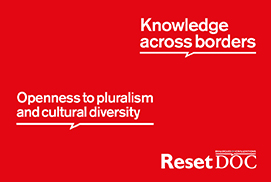18 July 2012
Many countries in the south-Mediterranean region have been experiencing profound changes in 2011 and 2012, and young Arab democracies will have to deal with problems and debates related to the relationship between religion and democracy, Islam and secularism, citizenship and the rights of minorities. People will have to chose between new or maybe existing “models” of democracy: will they chose to live in a secular democracy? If yes, which kind of secularism will they chose? Or will people rather prefer to build a “religious democracy?” To address these questions, Resetdoc has interviewed Rajeev Bhargava, currently Senior Fellow and Director of the Centre for the Study of Developing Societies in New Delhi. He has previously been a Professor at Jawaharlal Nehru University and Head of the Department of Political Science at the University of Delhi. He has been a fellow and visiting professor in many international universities, including Harvard and Columbia University. His research and publications focus on secularism, multiculturalism, political theory and India’s democracy.


